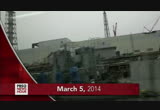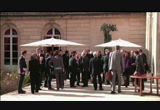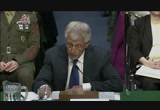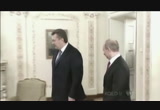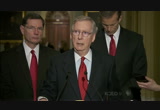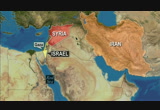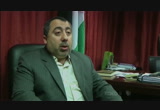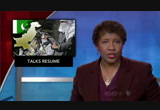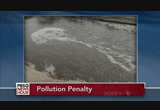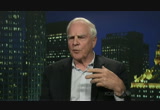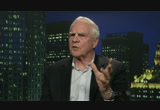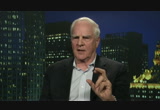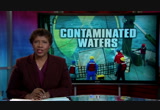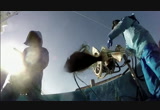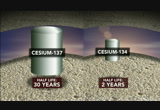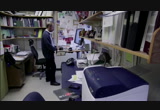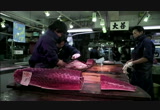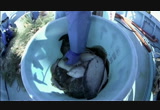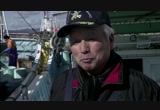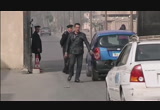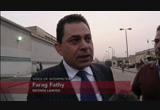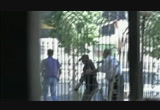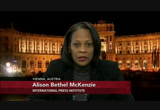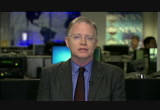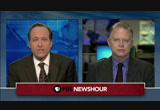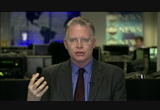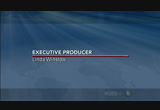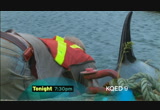tv PBS News Hour PBS March 5, 2014 6:00pm-7:01pm PST
6:00 pm
captioning sponsored by macneil/lehrer productions >> woodruff: top diplomats from the u.s., europe and russia met today in paris, trying to forge a peaceful end to the crisis in ukraine. but moscow's foreign minister refused to meet with his counterpart from kiev. good evening, i'm judy woodruff. >> ifill: and i'm gwen ifill, also ahead tonight. majors changes to the s.a.t. the college admissions exam will be overhauled to better reflect the work of high school students and focus on relevant academic skills. >> woodruff: plus, miles o'brien's second report from the crippled fukushima nuclear plant. how the meltdown is still affecting fish in nearby waters. >> cesium released at the crippled nuclear power plant has made its way into the sediment.
6:01 pm
that makes it unlikely these fukushima flounder will be deemed safe enough to catch and sell anytime soon. >> ifill: and, a look at tainted waters here in the u.s. one of the country's largest coal producers gets slapped with penalties in the hundreds of millions of dollars, and ordered to clean up waterways in five different states. >> woodruff: those are just some of the stories we're covering on tonight's pbs newshour. >> major funding for the pbs newshour has been provided by: >> and by the alfred p. sloan foundation. supporting science, technology, and improved economic performance and financial literacy in the 21st century.
6:02 pm
>> and with the ongoing support of these institutions and foundations. and... >> this program was made possible by the corporation for public broadcasting. and by contributions to your pbs station from viewers like you. thank you. >> ifill: the push for a peaceful resolution in ukraine stalled again today. when all was said and done, it remained unclear if or when russia might reconsider its actions in the crimean region. >> ifill: paris was the focal point for today's diplomacy, but negotiators came away with little to show for their efforts. secretary of state john kerry met with his counterparts from russia, britain, france and germany. the session was brief with no breakthroughs. kerry said the meetings were constructive, and that no one is served by further confrontation. >> we agreed to continue these
6:03 pm
intense discuss in coming days with russia, with ukrainians, in order to see who we can help normalize, stabilize and overcome this crisis. >> ifill: but russian foreign minister sergei lavrov gave no indication, before or after the paris meeting, that moscow would pull back in crimea. instead, he insisted, again, that the troops occupying much of the region are not russian, but local. >> ( translated ): regarding the self-defense forces created by the people of crimea, we do not have any power over them, they do not listen to our orders. >> ifill: lavrov also declined to meet with ukraine's acting foreign minister. he said there would be further discussions in days to come. meanwhile, in crimea itself, u.n. special envoy robert serry was forced to abandon his mission there after his car was
6:04 pm
surrounded and he was threatened by a pro-russian crowd. new trouble cropped up elsewhere as well. pro-russian activists stormed and re-took a government building in the eastern city of donetsk, only hours after being ejected. there's been no talk of any american military action in ukraine, but defense secretary chuck hagel told a senate hearing that the pentagon is taking other steps. >> i earlier this week directed the d.o.d. to suspend all military to military engagements and exercises with russia. also this morning the dod is pursuing measures to support our allies, including stepping up joint training through our aviation detachment in poland. and augmenting our participation in n.a.t.o.'s air policing mission in the balkan peninsula. >> ifill: the head of n.a.t.o. said the alliance also decided to suspend most of its meetings with russian officials, and review all of its cooperation
6:05 pm
with moscow. on the economic front, prime minister arseniy yatsenyuk, in kiev, talked up prospects of immediate financial aid from the west. >> a good gesture made by the united states government to support the state of ukraine with one billion dollars of guarantees is a first sign that ukraine could be back on track in terms of economic stability. but we need to move further and we strongly believe that our european partners would provide a package of economic and financial aid to ukraine too. >> ifill: the european union confirmed it, saying a $15 billion package over two years is in the works. that's the same amount that now- deposed ukrainian president viktor yanukovych accepted from russia in november. for his part, russian president vladmir putin said today there's no reason to damage economic ties between his country and the rest of the world.
6:06 pm
>> ( translated ): we see a certain political tension, but it should not influence our current economic cooperation. there is no need to create additional problems for anyone. >> reporter: despite putin's plea, european leaders have given russia until tomorrow to leave crimea or face sanctions. >> ifill: back in this country, researchers report a second baby born with h.i.v. has been successfully treated. the announcement came today at an aids conference in boston. the baby girl, born in california, was treated with a drug combination almost immediately after birth. she is now nine months old and free of the virus. the same treatment previously worked on a baby born in mississippi. >> ifill: americans who like their existing health insurance coverage may get to keep it another two years. that would extend a transition first announced last fall after millions had their policies canceled under the president's health care law. now, administration officials say the extensions will be valid to october first of 2016, even
6:07 pm
if the policies don't meet new requirements for coverage. >> ifill: president obama's nominee to lead the civil rights division at the justice department was blocked today. debo adegbile fell well short in a senate test vote, with seven democrats joining republicans in opposition. they criticized adegbile's work at the n.a.a.c.p. legal defense fund, which represented mumia abu-jamal, who in 1981 was convicted of killing a philadelphia policeman. senate minority leader mitch mcconnell. >> i think this particular nominee would likely not have been nominated at all but for the majority leader breaking the rules of the senate last november to change the rules of the senate, thereby lowering the threshold. this nominee, however, was so unfit for the position to which he's been nominated that even seven democrats couldn't support it. >> ifill: president obama called the senate vote a travesty.
6:08 pm
and the senate's democratic majority leader, harry reid, said the nominee was treated unfairly. >> this man did not enter a courtroom for the murderer. he didn't write a single word of any of the briefs on behalf of the murderer. he worked at the naacp. it wasn't his brief. the cost of the success appeared uncertain at best. homeowners in flood-prone areas may soon get relief from higher >> ifill: homeowners in flood- prone areas may soon get relief from higher premiums for federal flood insurance. the house voted overwhelmingly last night to undo the increases. they were imposed under a 2012 law to help the program tackle its $24 billion debt. the house measure now has to be reconciled with a similar bill that passed the senate. >> ifill: a leading coal
6:09 pm
producer agreed today to pay a $27 million fine and spend another $200 million to reduce toxic discharges. the settlement involves alpha natural resources and its operations in kentucky, pennsylvania, tennessee, virginia and west virginia. it's largest fine ever for water pollution violations. we'll have more on the penalty later in the program. in texas, republicans and democrats have chosen their nominees for governor in a closely watched race. attorney general greg abbott secured the g.o.p. nomination in a tuesday primary, while democrats chose state senator wendy davis. they'll face off in november. >> ifill: israel seized a ship in the red sea today and said it carried advanced rockets intended for palestinian militants in gaza. the naval raid happened in international waters, about a thousand miles off eilat on the israeli coast. the rockets were found aboard a ship flying the panamanian flag. israel's military said they were made in syria and smuggled by iran. traveling in los angeles,
6:10 pm
israeli prime minister benjamin netanyahu said it's shows iran cannot be trusted, especially in ongoing nuclear talks. >> these weapons were going to be used against israel. the entire operation, this clandestine operation was organized by iran. while iran is conducting these talks, smiling to the international community it continues to arm terrorist groups continues to perpetrate terrorism around the world. >> ifill: iran denied any involvement. and a spokesman for hamas, the militant group ruling gaza, denied the rockets were bound for its territory. >> ( translated ): this zionist tale is a silly claim and a futile fabrication aimed at justifying the blockade on the gaza strip, as if there was a port with ships that come and go from gaza. in actuality, the strip is blockaded and they are talking about a ship that was found in the red sea thousands of miles away. this is a big lie. >> ifill: in washington, the
6:11 pm
state department said the u.s. worked closely with the israelis as they planned the raid, and agreed to let them take the lead. meanwhile, iran claimed it now has missiles with multiple warheads. four types of ballistic missiles were displayed today. the defense minister said two of them have multiple warheads, boosting their destructive power. some of iran's missiles are believed to have a 1200-mile range, capable of reaching much of the middle east. u.n. human rights investigators charged today that all sides in syria's civil war are committing war crimes by shelling and starving civilians. the investigators blamed the major powers for not acting to rein in the warring parties. and, they called again for the u-n security council to refer the worst violations to the international criminal court. pakistan has restarted peace talks with the taliban. the two sides met today for the first time in three weeks after the pakistani taliban announced a one-month ceasefire. prime minister nawaz sharif has pushed for negotiations since he took office last year, but
6:12 pm
they've proceeded in fits and starts. the world health organization is recommending that daily consumption of sugar be cut in half, amounting to just five percent of your total calories. the w.h.o. found higher sugar consumption is strongly tied to obesity, tooth decay and a number of chronic diseases. >> ifill: on wall street today, the dow jones industrial average lost more than 35 points to close at 16,360. the nasdaq rose six points to close near 4,358. and the standard and poor's 500 finished down a fraction, at 1,873. still to come on the newshour: major changes to the s.a.t.; how fish are faring in the waters around fukushima; trouble for journalists, in egypt and elsewhere; plus, the largest penalty ever for a coal company polluting u.s. waterways. >> woodruff: the s.a.t, long a
6:13 pm
subject of great debate, is about to undergo some big changes. the college board, which administers the exam, announced a partial overhaul that will take effect in the spring of 2016. the changes include: there will be new fee waivers for lower-income students too. college board president david coleman said he was concerned the s.a.t., and the costly testing mania surrounding it, was putting an even bigger burden on disadvantaged students. >> we must confront the inequalities that now surround assessment such as costly test preparation.
6:14 pm
there is time for the college board to say in a clear voice, the culture and practice of test preparation that now surrounds admissions exams drives the perception of inequality and injustice in our country. >> reporter: for >> woodruff: fk at the changes and the reason behind it, we turn to special correspondent for education, john merrow. john, welcome to the program. first of all, how big a deal is this that they're making these changes? >> i think it's a big deal. the changes you mentioned, students will applaud several of them -- getting rid of the obscure vocabulary words, using "propitious" in favor of self-deprecating. they will be in favor of that. they will be in favor of getting rid of the penalty for guessing
6:15 pm
and getting rid of the mandatory essay. the older folks will like going back to 1600 instead of 2400. there's a search comfort level with the number 1600. it's kind of like the new coke, that was an experiment that didn't work. and i think everyone will applaud the fee waiver for certain low-income students to make it easier for them to use the s.a.t. >> reporter: so when the president of the college board said he saw among other things the test should offer worthy challenges not artificial obstacles, what was he saying? >> well, i think he wants to make the test more relevant, to make the s.a.t. more relevant. in the questions, the language part of it, the students will be reading source documents -- a letter and asked to make judgments and find evidence.
6:16 pm
so that's not going to be susceptible to test prep. whether it turns out that way, i would suspend judgment on that. >> reporter: is it possible to say by looking at these changes what's going to be tested in each student? >> well, what mr. coleman wants is that this will connect more closely to the high school curriculum, which is, of course, itself being changed. and in the clip you played and the other parts of his speech, he went after test prep, saying that this is a source of inequality, that wealthy families can pay for test prep and that gives them an unfair advantage. and you didn't mention that there's an alliance formed with salcon, the founder of the conn academy, that would have free prep lessons so people won't have to spend all that money to get ready for the s.a.t., that's
6:17 pm
his hope. i'm a little skeptical about that. if he was trying to drive a stake through the heart to have the test prep industry, good luck with that. they're smart people and i predict their business will actually improve because they'll be able to say, hey, there's a new s.a.t., we can help you get ready for it. >> reporter: when he says he's concerned about inequality, the fact that students who are disadvantaged have been -- students who come from a low-income background, for example, may be disadvantaged, do you see these changes addressing that? >> it may be that the different content of the s.a.t. will work to the advantage of students who tend to business, who do their work, and that shouldn't be determined by your income level. this test has almost always been a better predictor of your parents' income and education
6:18 pm
than of how well you might do as a freshman, he acknowledges that. i think what's happening -- part of what's happening here is that the college board is paying attention to market share. now, it's a direct competitor of another test called the a.c.t. and just two years ago the a.c.t. surpassed the s.a.t. more kids took the s.a.t a.c.t.e s.a.t. and this matters because they're both businesses. just like restaurants, they need customers. even more upsetting, i think, for the s.a.t. is that a number of students have embraced the a.c.t. kentucky will use the a.c.t. as a measure of school quality. i don't that any state uses the s.a.t. perhaps. there are 13 to 14 states now rely on the a.c.t., and that has to be a little scary for the folks at the s.a.t. so i think, you know, that's
6:19 pm
part of what's driving this. they're losing market share. >> reporter: and remind us in -- >> woodruff: and remind us in thumbnail a, what is the difference between two two tests? >> well, the a.c.t. has a science section, the s.a.t. does not. the a.c.t. is much more aligned with high school curriculum, more of an achievement test. s.a.t., what does the a. stand for? at one point the scholastic aptitude, then the scholastic achievement test. some say it's scholastic advantage test. it's now known as the s.a.t. just like k.f.c. used to be kentucky fried chicken. i think the a.c.t. is seen by more people as being a more reliable test and mr. coleman is moving aggressively to counteract that. >> woodruff: you started out
6:20 pm
by making a distinction between how students will see this and how some adults will see it and, finally, if you're a student and if you're a parent or an educator, how do you view -- what do you make of this change? >> well, you know, the other part of this, judy, is that about 800 colleges no longer require either of these tests. so that's another factor in what's going on here. mr. coleman is moving to say this s.a.t. matters. the market share to have the a.c.t. and 800-plus colleges require neither the a.c.t. nor the s.a.t., he's moving aggressively to make that happen. i talked to nick lemon who knows more about this than just about anyone and he said, on balance, these are positive changes, these are a good thing. we'll see. i kind of like using words like "propitious," but it shouldn't be a guessing game that you
6:21 pm
study for. so using words that we use in the real world, that makes a lot of sense. i think probably nick lemon is right, a lot of these changes are good, but don't forget, the underlying motive, i think, is the market share -- a market share one. >> woodruff: special correspondent for education, thank you. >> thank you, judy. >> woodruff: now, the second of a three-part series on the impact of the meltdown at the fukushima nuclear power plant in japan. tonight, we look at questions about the safety of fishing in the region, now and in the future. newshour science correspondent miles o'brien traveled there recently and has the story. >> reporter: as brisk winter mornings go, this was a fine one to go fishing. steamed out of the port of
6:22 pm
japan. our captain was a fourth-generation fisherman his son is a at the helm. the predecessors in the family business never went on an expedition like this one. we cannot eat the fish we catch, he told me. all fish must be released. we are allowed to fish only the amount necessary for inspection. the boat was in troubled waters, fishing for data, part of a long-term effort to figure out when, if ever, fish caught near the fukushima daiichi power plant will be safe to eat. the nets filled with flounder, they threw most back into the pacific. in the end, the haul is just one small bucket, about 12 pounds of fish headed to a lab to be tested for radionucleides.
6:23 pm
the test in japan is the most stringent in the world. we catch fish exceeding the safety standards, i don't think there are many, though, he says. because we're in the 20-kilometer zone, i think we should be cautious. scientists who have studied these waters would not disagree. ken is a senior scientist at the oceanographic institution in massachusetts, he was part of the team for 12 weeks after the meltdown and a research expedition. he cut his scientific teeth studying the chernobyl meltdown on the black sea. >> i knew it was important to get there as quick as we could to see what was happening in the ocean at that time. >> reporter: he and his team had gathered sediment, core and
6:24 pm
water samples off fukushima after several different voices. the real heavy lifting to measure the radioactivity in the water is done in labs. >> this is fukushima from our crews this past september. we found there is still contamination -- >> reporter: crystal is tracking two isotopes. 137 and 134. cesium 137 has a half-life of 30 years, so it takes about 300 years to mostly disappear. but cesium 134 doesn't stick around as long with a half-life of only two years, it's all but gone after 20. so scientists can say with certainty that cesium 134 found today is -- >> it's still not gone away.
6:25 pm
it's indicating the reactors are leaking which is more cesium and there is still a problem. >> reporter: the plume of water tainted with radiation from fukushima is only now reaching the other side of the pacific. this has prompted an online tsunami at pseudoscience blog rumors and wild accusations on the u.s. west coast. this viral youtube video shows a man waving a geiger counter at a beach near san francisco. it seems scary, but the experts say it is meaningless. in fact, the real experts say the amount of cesium in the plume is not and will not be a threat to marine or human health 5,000 miles from fukushima. >> if we get up to about 7, that's beyond what i'm actually expecting and will be a thousand times less than what we're allowed to have in our drinking water. >> reporter: that said, if any
6:26 pm
scientist worth his salt would like hard data to confirm it. so he is among a cadre of scientists asking various federal agents to fund a study on the fukushima plume as it arrives in the u.s. they approach the national oceanic and atmospheric administration, the department of energy, the environmental protection agency, the nuclear regulatory commission and the national institute of standards and technology. all said the same thing -- it's not their responsibility. >> one of our frustrations is our government hasn't taken this on as something we should sponsor in terms of our national interests. there is often a lot of finishing pointing going on and we hope in the long run we can make progress to find a home, as we call it. >> reporter: in the mean time, he is relying on foundation support and doing some crowd sourcing. >> all it takes is filling up one of these containers. >> reporter: he launched a web site and created these kits
6:27 pm
to make it easy for anyone to do some fieldwork. interested individuals and communities pay $550 for the fox, gather samples and ship them to woods hall for analysis. the data is shared online. so far donors have funded 33 sample sites. but how is the radiation affecting the creatures that live in the sea and ultimately the human beings who enjoy eating seafood? >> this one. at's cesium 134. >> reporter: in new york at stoney brooke university, this man is focused on radioactivity in fish. he studies tuna. these amazing creatures spawn near japan, migrate near california and return to japan. he measured tuna caught in san diego four months after the meltdown. >> we were quite surprised to
6:28 pm
see that every single fish we analyzed had clear evidence of fukushima derived radionucleoides in them. >> reporter: this only measured 10 milligrams of fukushima cesium. the allowable in japan is 100. >> it's very, very low and much lower from the nay chiewrl occurring radium which no one was ever worried about in the first place. >> reporter: but eating bottom fish like flounder is another matter. eating fish acesium at the powes made it into the sediment, making these flounder unable to catch and sell anytime soon. >> those levels are very high and in some cases clearly exceed safety limits. i would certainly avoid eating those fish.
6:29 pm
>> reporter: he gave us flounder samples to test independently. we took the flounder over to the citizens radi radioactivity meag station. the fish were chopped into small pieces and put into a lead-shrouded guam nay spectrometer to test all gamma radiation emitters. the numbers were lower than expected. in the flounder, amounts safe enough to eat. but fishermen would have to capture and test more flounder before they can be declared safe to eat, just part of the frustration. frustration. the number of fish is increasing fast because we haven't fished for three years, he says, and they're getting bigger.
6:30 pm
three years ago, he road out the tsunami in the wheelhouse of this boat. his wife just barely escaped before their home was washed away and they now live in tiny temporary quarters. now he wonders if he has lost his legacy as well. the fifth generation of sato fishermen may very well be the last. >> woodruff: in egypt, the trial of three al-jazeera journalists, which has sparked a global outcry by press freedom advocates, resumed today. jeffrey brown reports. >> brown: tanks guarded the fortified entrances of cairo's tora prison today. inside, al jazeera journalists mohamed fahmy, baher mohammed and peter greste, wearing white prison uniforms, stood in the courtroom's defendant cage. they and other al-jazeera
6:31 pm
journalists are accused of endangering egyptian national security by assisting a terrorist organization, namely: the muslim brotherhood. the military-backed government banned the group after ousting president mohamed morsi in july. al-jazeera maintains the charges are "absurd, baseless and false," as do the journalists' relatives, who spoke after the hearing. >> ( translated ): the accusations directed towards them are far from the truth, none of them are affiliated to any political party, movement, or the muslim brotherhood, they use the same equipment used by all other channels. if they have a problem with al- jazeera, the journalists have nothing to do with it the defendants' lawyer claimed progress, based on the way the hearing went. >> ( translated ): today the session was to hear witness testimonies. the most important of these was
6:32 pm
the accusations directed towards these three defendants have completely collapsed. >> brown: the trial has sparked outrage among human rights groups, journalistic organizations and others. protesters have demonstrated at egyptian consulates in mexico city, istanbul, and elsewhere demanding the journalist's release. and in february, the obama administration urged egypt to drop the charges. white house press secretary jay carney: >> the government's targeting of journalists and others on questionable claims is wrong and it demonstrates an egregious disregard for the protection of basic rights and freedoms. >> brown: al-jazeera has also spearheaded an online campaign with twitter photos of hundreds of people with their mouths taped shut and the hashtag "free a.j. staff." the international press institute says the case highlights growing dangers to journalists worldwide. in all, 119 members of the press died while on assignment in 2013. no place was more deadly than syria, where the ongoing civil war claimed the lives of 16
6:33 pm
journalists last year. >> we explore the algiers case and threats to other -- al-jazeera case. welcome, alison. what exactly is the government saying al-jazeera journalists did? >> they're saying not just the bulk to have the journalists currently in jail but all including journalists from turkey and yemen, that they have been practicing terrorism by affiliating with the terrorist group, mostly. they're also claiming, in some
6:34 pm
cases that the journalists are not licensed to work in egypt and are stirring the pot. in other words, going against the egyptian government and showing the egyptian government in a very bad light. that is their chief complaint. >> brown: david, what's your reading of this particular case? some of it is attached to al-jazeera being funded by the qatar government which is at odds with the egyptian government. >> it's part of a struggle where the military is trying to crush the muslim brotherhood. the egyptian military sees al-jazeera as part of qatar's effort to pac to back the broth. qatar denies it and al-jazeera denies it. the charges are absurd as i've seen and it's a scapegoat for problems in the country. >> brown: alison, you've
6:35 pm
talked to officials there. what are are the stakes, first in egypt itself? >> well, the problem is -- well, there are many problems, but the main problem is this is causing problems not by journalists, not only journalists in egypt but foreign correspondents as well. some of these people who have attacked journalists and most to have the ones who have been physically attacked have been broadcast journalists because they are most visible, especially cameramen. the people who are attacking them are getting away with it. there's a climate of impunity which is a very big problem there. but the stakes are really, really high. most recently, two years ago, egypt wasn't even on the radar in terms of one of the most dangerous places in the world for journalists. today, it is one of the most dangerous places for journalists, and one of the big problems is that we don't see a solution to this anytime soon. we're hoping there will be some
6:36 pm
sort of diplomatic solution, maybe a conversation between al-jazeera and the military government, but they're very far apart, and there is a great disdain for al-jazeera from government officials, military officials in egypt and from citizens. but at the end of the day, as david mentioned, we don't believe that journalists should be jailed for what they write or what they broadcast on radio or television. >> brown: david -- and they certainly should not be detained. >> brown: david, as we mentioned, there's a lot of outside pressure coming from the outside world. what's your experience, in particular, and in a case like this, how much impact does that have? is there the possibility that it also causes somewhat of a backlash? >> there are sort of two different dynamics going on. i was kidnapped by insurgents
6:37 pm
and that is a danger journalists are facing. there is actually 30 journalists kidnapped and missing in syria most grabbed beiji hadn't rebels in the north of the country. in egypt this is government cracking down on journalists. worldwide, roughly a 50% increase of journalists in jail since 2008. 211 journalists in jail at this point. it's outrageous. you have both groups, governments blaming journalists and insurgents at the same time. i think public pressure can help with governments. iran was pressured a great deal publicly when they detained journalists in 2009, so i think the more noise, the more complaints against the egyptian government the better. >> brown: alison, we started broadening this out from egypt internationally. how does this particular case fit in to bigger concerns for journalists around the world? >> the problem is that we've
6:38 pm
seen an increase, and david alluded to this, an increase in the number of journalists who are being attacked, kidnapped, jailed without being charged for indefinitely periods of time, and one of the biggest things being used against journalists is this idea of journalists being terrorists, and these charges are generally very flimsy charges with no proof, and people are using -- and it's increased, obviously, since september 11 -- are using terrorism as a means to detain journalists because they don't like what they read or what they hear. the problem is enormous, and we are very concerned also about the safety of the journalists, not only being detained in prison but being murdered and brutally murdered. so we're quite concerned and the u.n. council of human rights has made this quite an issue, the safety of journalists and, of course, where i am today, austria, the country of austria
6:39 pm
has made it one of their priorities to address this issue of the safety of journalists and particularly women journalists. they've seen an uptick in attacks and assaults and everything from rape to kidnapping of women journalists, more than we've seen in recent history, and that is of great concern to us. >> brown: david, in the last minute or so, you can fill in that picture a little bit more. this is upgrading the dangerous for journalists operating around the world? >> it definitely is, and it's actually local journalists targeted the most and local journalists trying to report about corruption and problems in the government itself. so there will be a veneer of terrorism and broader issues, but this is just people in power silencing journalists who are writing stories that hold them accountable. the stories that foreign journalists get a lot more headlines but the vast majority of victims and the murders are
6:40 pm
local journalists being killed by local governments or local criminals. so, again, the problem is the trend is terrible, imprisonments are up, killings are up and it's not stopping and there has to be much more of an outcry against this. >> brown: thank you both very much. >> thank you. >> ifill: a big u.s. coal producer will pay the largest fine ever to clean up polluted waters in five states. we'll have that story in a moment. but first this is pledge week on
6:46 pm
6:47 pm
associated press, joins me now. 27 1/2 million dollars in finds, $200 million for the cleanup. in the range of penalty, how does this rank? >> it's the biggest ever for a company that violates its water pollution permits. other companies that paid big fines in the past in 2008, the e.p.a. said this is the biggest ever for a company that violated permits it had from states. >> ifill: describe the pollution. >> we're talking about 6,000 violations over 300 state-issued permits, hundreds of streams, tributaries and rivers, 79 active coal minus, over 20 coal processing plants where they put the coal and wash it before it's shipped, over five appalachian states, so it's a pretty massive coverage area for the settlement. >> reportersettlement. >> ifill: how did the discharges occur? >> they're actually piped into
6:48 pm
the waterways and states issue permits for the companies that give them certain limits and in this case this company repeatedly from 2006 to 2013 exceeded those limits, that they were actually authorized to discharge. >> ifill: it's not illegal to discharge, it's just there's a cap on how much they can discharge? >> correct, they have an amount and they went over the amount repeatedly, in some cases over 35 times the limit put into the permit. >> ifill: how many violations, 6,000? >> over 6,000. >> ifill: just this one company? >> this one company. it's a very big company, coal conglomerate, it's based in virginia and 66 of its subsidiaries. >> ifill: what kind of pollutants are we talking about? >> we're talking about total suspended solids is what the e.p.a. talks about, just bits and pieces of things that come out in the coal mining process but they also contain heavy metals which are toxic to fish and other wildlife. we saw this recently in the duke
6:49 pm
energy case, the big coal ash spill down in north carolina, included many of the same contaminants. while they're not water quality if they're filtered out in treatment, they are problems for the ecology of the waterways. >> ifill: we talked about the north carolina case and covered the west virginia case from a few weeks -- two months ago when we found out the water was contaminated and may still be. is there a connection? >> the connection is coal. it's widely known in the -- and the e.p.a. hassic knowledged coal has a big footprint on our water resources, from the mining of coal to the burning of coal for electricity and the waste created by that process, just what happened in duke energy in north carolina. so it's about coal. the west virginia spill was a spill of a chemical used to clean coal. >> ifill: right. we're talking right now about discharges from mines that happen on a routine basis. and then north carolina is about coal ash spilling into a
6:50 pm
waterway. this is ash that's collected actually by air pollution equipment and so we're transferring what we're taking out of the air into the waterways. >> ifill: how does the coal industry respond to this? >> it was very interesting. they acknowledged they had these violations but made a point they're a very large company. they acquired nassy energy in 2011, increasing the portfolio and permits. over 700 permits, they told me, from state officials. 5,000 discharge points. they said, in the grand scheme of things, there wasn't a lot. we're 99.8% in compliance all the time. >> ifill: so the cost of doing business? >> they said we predicted this was going to happen, we accounted for it and we expect no way off, but they're saying we're a very large company, can do better but we do well now.
6:51 pm
>> ifill: so a size of $27.5 million in fines, what does it require the companies do now? >> they're going to have to put waste water treatment systems on the discharges on the mines. now the waste is collected and settles out in crude systems before emptied into the stream, so they have to do boost monitoring and have testify a third party to validate the monitoring and they will have to digitally record the violations. in many cases, the companies are submitting reams of actual paper to the states and the states don't really have the available resources to keep track of the violations reported by these companies and follow up on them. >> ifill: on self reporting, does a settlement tell us the epiap is getting -- e.p.a. is getting tougher or the companies are stepping up? >> i think the ea with the 2008 and settlement today is keeping
6:52 pm
tabs and knows this is a tough thing to get their arms around and states need help to police this. there's just so much of it out there. so many minus, so many discharge points and i think you will see very quickly republicans in congress and coal industry and their allies talk about this in the broader context of obama cracking down on this, the coal, the carbon limit pollutions imposed by power plants and a larger take on coal. >> ifill: so there's a crackdown of some kind? >> correct. >> ifill: dina cappiello of the associated press. thank you. >> thank you. >> woodruff: again, the other major developments of the day. the u.s., russia and other powers met in paris to discuss ukraine, but made no headway. and the russians declined to meet with ukraine's new government. the senate blocked president obama's nominee to head the
6:53 pm
civil rights division of the justice department. and the college board dropped the essay requirement as part of the s.a.t. starting in 2016, it will be optional. >> ifill: on the newshour online right now, economist and psychologist dan ariely writes about a strange correlation between the busy exam periods for students enrolled in college and the death of grandparents. but the trend doesn't hold for those who take special online courses called "m.o.o.c.'s." read his analysis on making sense. all that and more is on our web site, newshour.pbs.org. >> woodruff: and that's the newshour for tonight. on thursday, we'll look at the value of some economic reports, like monthly jobs numbers. and what they really say about the state of the economy. i'm judy woodruff. >> ifill: and i'm gwen ifill. we'll see you on-line. and again here tomorrow evening. for all of us here at the pbs newshour, thank you and good night. >> major funding for the pbs newshour has been provided by:
6:54 pm
♪ ♪ moving our economy for 160 years. bnsf, the engine that connects us. >> supported by the john d. and catherine t. macarthur foundation. committed to building a more just, verdant and peaceful world. more information at macfound.org >> and with the ongoing support of these institutions and foundations. and...
6:55 pm
7:00 pm
. >> this is "nightly business report" with tyler math son and cisse -- brought to you in part by -- >> the street.com featuring stephanie link who shares her stock picks and market insights with action alerts plus. the multimillion-dollar portfolio she manages with jim cramer. you can lesch more at the street.com/nbr. winter blues. reports on the labor market raising concerns for would be job seekers. will friday's government employment report confirm the hiring slump, and is this just a blip or a long-term trend? >> exxonmobil disappoints investors with its oil and gas production outlook. will new projects re-energize the world's largest publicly traded energy company? and economic priorities. china sets up course for growth and structural ef
314 Views
1 Favorite
IN COLLECTIONS
KQED (PBS) Television Archive
Television Archive  Television Archive News Search Service
Television Archive News Search Service 
Uploaded by TV Archive on

 Live Music Archive
Live Music Archive Librivox Free Audio
Librivox Free Audio Metropolitan Museum
Metropolitan Museum Cleveland Museum of Art
Cleveland Museum of Art Internet Arcade
Internet Arcade Console Living Room
Console Living Room Open Library
Open Library American Libraries
American Libraries TV News
TV News Understanding 9/11
Understanding 9/11
